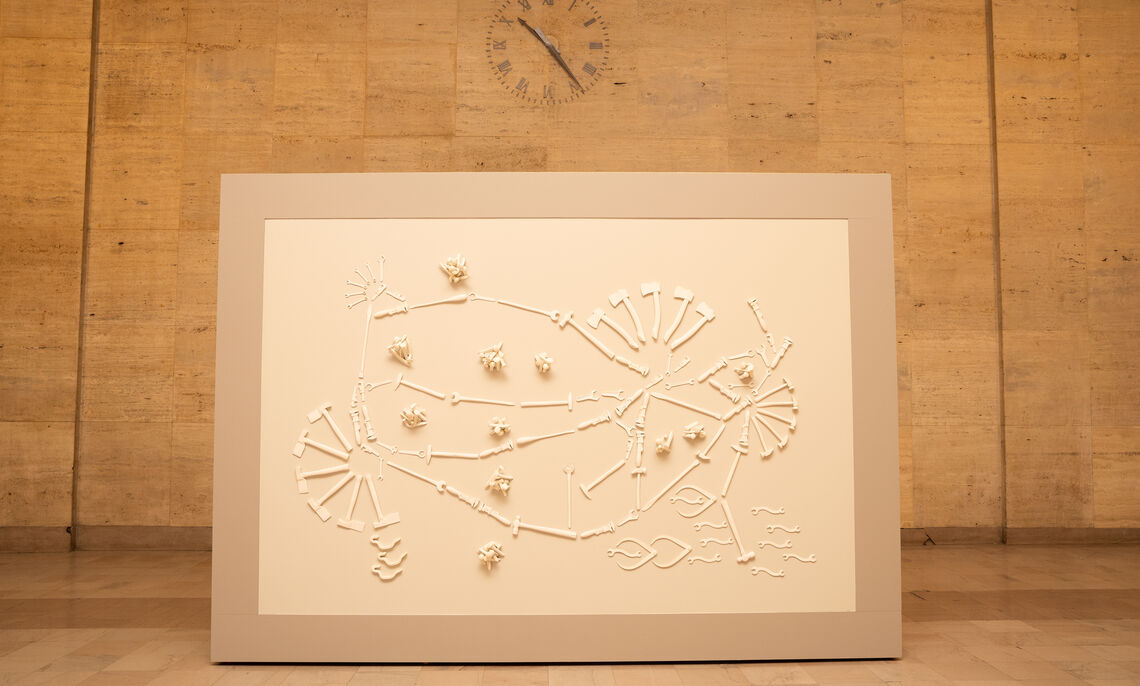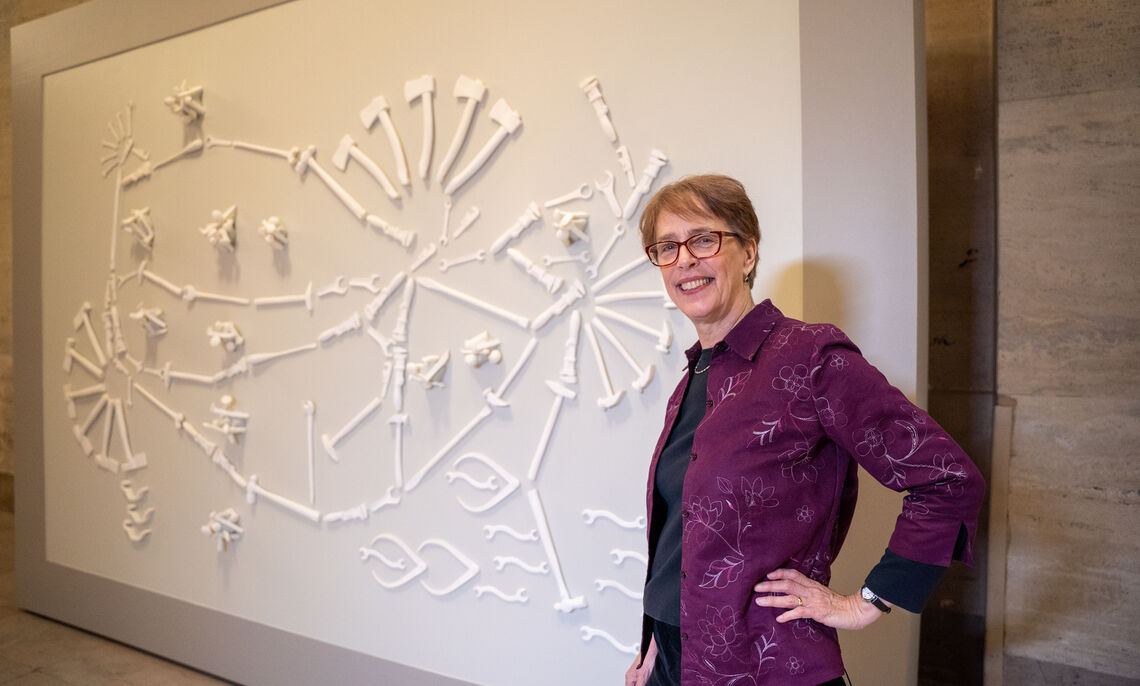Franklin and Marshall College issued the following announcement on May 23.
For more than 25 years, Virginia Maksymowicz, emerita professor of art, commuted weekly on Amtrak’s Keystone train from her Philadelphia home to teach sculpture at Franklin & Marshall College.
She came to know the route well and in her last year of teaching, Amtrak invited her to design an artist-inspired national route map for The National, their on-board magazine. A photograph of Maksymowicz’s map appeared in the December 2019/January 2020 issue.
A version of the actual sculpture of the map was installed in the North Waiting Room of Amtrak’s station on 30th Street in Philadelphia, which was renamed a few years ago for an F&M graduate, the late congressman William H. Gray ’63.
An April 27 press event unveiled her work, titled “Tools of the Trade.”Maksymowicz said those hours riding the line between Philadelphia and Lancaster allowed her to produce some of her best thinking for designing, researching and planning many of her artworks.
In 2017, the professor was browsing a copy of the now-retired magazine when a feature that invited artists to interpret Amtrak’s national route system caught her eye. She sent her proposal to the welcoming editors of The National.
Maksymowicz, who was already using plaster casts of tools and bones to make links between the human body and architecture, envisioned the rail system as another kind of structure. Similar to the skeleton connecting parts of the body, the route connects Amtrak stations, north, south, east and west.
For the map, she collected vintage tools, railroad spikes and clips that Amtrak workers might use on the job. She made silicone molds from them and cast them into a bonelike material. She used casts of spikes and bolts to suggest mountains, and S-curved wrenches, calipers and railroad clips to signify water.
“Designing an artwork for a public space – whether the pages of a magazine or a train station – is both exciting and challenging,” Maksymowicz said. “This requires dialogue, negotiation and compromise, which is one part of what makes the artwork public.”
Original source can be found here.

 "Tools of the Trade" is located in the station's North Waiting Room. Image Credit: Amtrak
"Tools of the Trade" is located in the station's North Waiting Room. Image Credit: Amtrak Virginia Maksymowicz and "Tools of the Trade," her sculpture of Amtrak's national rail network that now hangs in Philadelphia's 30th Street station. The station was renamed a few years ago for the late F&M graduate William H. Gray ’63. Image Credit: Amtrak
Virginia Maksymowicz and "Tools of the Trade," her sculpture of Amtrak's national rail network that now hangs in Philadelphia's 30th Street station. The station was renamed a few years ago for the late F&M graduate William H. Gray ’63. Image Credit: Amtrak




 Alerts Sign-up
Alerts Sign-up